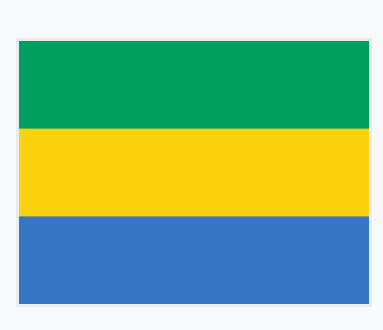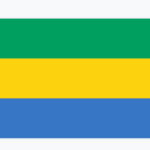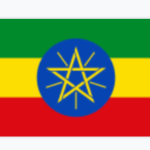Gabon is a fascinating country that lies on the Atlantic coast of West Central Africa, straddling the Equator. It has a rich and diverse culture, a stunning natural environment, and a vibrant economy. In this blog post, I will introduce you to some of the main aspects of Gabon, such as its history, geography, politics, and society.
History
Gabon’s history dates back to ancient times, when it was inhabited by pygmy peoples and later by Bantu migrants who settled in the area from the 14th century onwards. Gabon became part of the French colonial empire in the late 19th century, and was integrated into French Equatorial Africa in 1910. Gabon gained its independence from France in August 1960, after a referendum that established it as a republic. Since then, Gabon has had three presidents: Léon M’ba (1960-1967), Omar Bongo (1967-2009), and Ali Ben Bongo Ondimba (2009-present). Omar Bongo ruled for more than four decades, creating a stable but authoritarian regime that relied on a network of patronage and oil revenues. He was succeeded by his son Ali Ben Bongo, who has faced challenges from opposition parties and civil society groups demanding more democracy and transparency. In August 2023, Gabon experienced a military coup d’état that ousted Ali Ben Bongo and installed a transitional government led by Colonel Brice Oligui.
Geography
Gabon has an area of nearly 270,000 square kilometers (103,347 square miles), making it slightly smaller than the state of Colorado. It is bordered by Equatorial Guinea to the northwest, Cameroon to the north, the Republic of the Congo to the east and south, and the Gulf of Guinea to the west. Gabon’s coastline is about 885 kilometers (550 miles) long, and features sandy beaches, lagoons, mangroves, and rocky capes. Gabon’s terrain is mostly composed of rolling hills and plateaus covered by dense rainforests that account for about 85% of its land area. The highest point in Gabon is Mount Iboundji, which reaches 1,575 meters (5,167 feet) above sea level. Gabon also has several rivers that drain into the Atlantic Ocean, such as the Ogooué, the Nyanga, and the Como. Gabon’s climate is tropical, with two rainy seasons (October to May in the north and February to June in the south) and two dry seasons (June to September in the north and December to January in the south). The average temperature ranges from 20°C to 28°C (68°F to 82°F), and the average rainfall varies from 1,200 millimeters (47 inches) to 3,000 millimeters (118 inches) per year.
Politics
Gabon is a unitary presidential republic with a multiparty system and a parliament consisting of two chambers: the Senate and the National Assembly. The president is elected by popular vote for a seven-year term and can serve for up to two terms. The president appoints the prime minister, who heads the government and presides over the Council of Ministers. The president also appoints members of the Constitutional Court, which oversees the constitutionality of laws and acts as an electoral tribunal. The Senate has 102 members who are elected by indirect vote for six-year terms. The National Assembly has 120 members who are elected by direct vote for five-year terms. The main political parties in Gabon are: the Gabonese Democratic Party (PDG), which has been in power since 1968; the National Union (UN), which is the main opposition party; the Rally for Democracy and Progress (RDP); and the Social Democratic Party (PSD).
Society
Gabon has an estimated population of 2.3 million people, making it one of the most sparsely populated countries in Africa. About 80% of its population lives in urban areas, mainly in Libreville, which is the capital and largest city with about 700,000 inhabitants. Other major cities include Port-Gentil, Franceville, Oyem, and Moanda. Gabon’s population is composed of more than 40 ethnic groups that belong to four major linguistic families: Bantu, Ubangi-Sere-Niger-Congo, Khoisan, and Pygmy. The largest ethnic group is Fang (about 32%), followed by Punu (about 15%), Nzebi (about 12%), Teke (about 10%), Myene (about 8%), Kota (about 7%), Vili (about 5%), Mbama (about 4%), and others (about 7%). The official language of Gabon is French, which is spoken by most of the population as a first or second language. There are also several regional languages, such as Fang, Mbete, Myene, Nzebi, Punu, Teke, and Vili. English, Spanish, Portuguese, and Arabic are also taught in some schools. The main religion in Gabon is Christianity, which is professed by about 76% of the population. Most Christians are Roman Catholics (about 42%) or Protestants (about 34%). Islam is the second largest religion, with about 12% of the population being Muslims. There are also followers of traditional African religions (about 6%) and other faiths (about 1%). Gabon’s culture is influenced by its ethnic diversity, its colonial heritage, and its natural environment. Some of the most prominent aspects of Gabon’s culture are: its music, which features traditional instruments such as harps, xylophones, drums, and flutes; its dance, which is often accompanied by masks and costumes that represent ancestral spirits; its art, which includes woodcarving, basketry, pottery, painting, and sculpture; its literature, which includes oral traditions such as myths, legends, proverbs, and riddles; and its cuisine, which is based on staples such as cassava, plantains, rice, fish, meat, and vegetables.
Economy
Gabon is one of the most prosperous and stable countries in Africa in terms of per capita income. Its economy is largely dependent on its natural resources, especially oil and gas, which account for about 40% of its gross domestic product (GDP) and 80% of its exports. Gabon also has significant reserves of manganese, iron ore, gold, diamonds, timber, and uranium. Gabon’s main trading partners are China, France, the United States, India, and South Africa. Gabon’s currency is the Central African CFA franc (XAF), which is pegged to the euro. Gabon’s GDP in 2022 was estimated at $22.2 billion (nominal) or $39 billion (purchasing power parity), with a growth rate of 3.5%. Its GDP per capita was estimated at $10,282 (nominal) or $18,080 (PPP), ranking it among the upper-middle-income countries in the world. Gabon’s main economic challenges include diversifying its economy away from oil dependence, reducing poverty and inequality, improving infrastructure and public services, enhancing governance and transparency, and protecting the environment.








